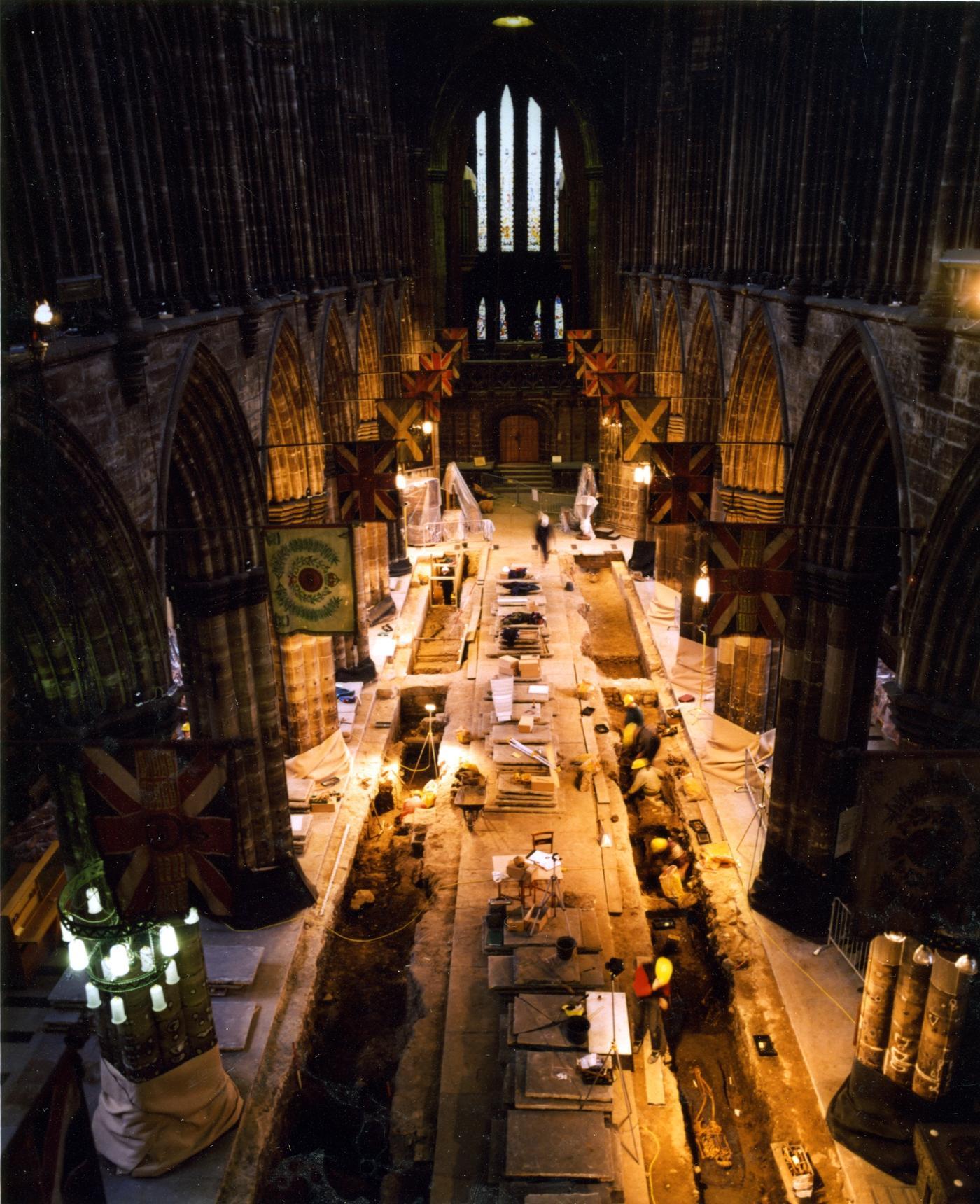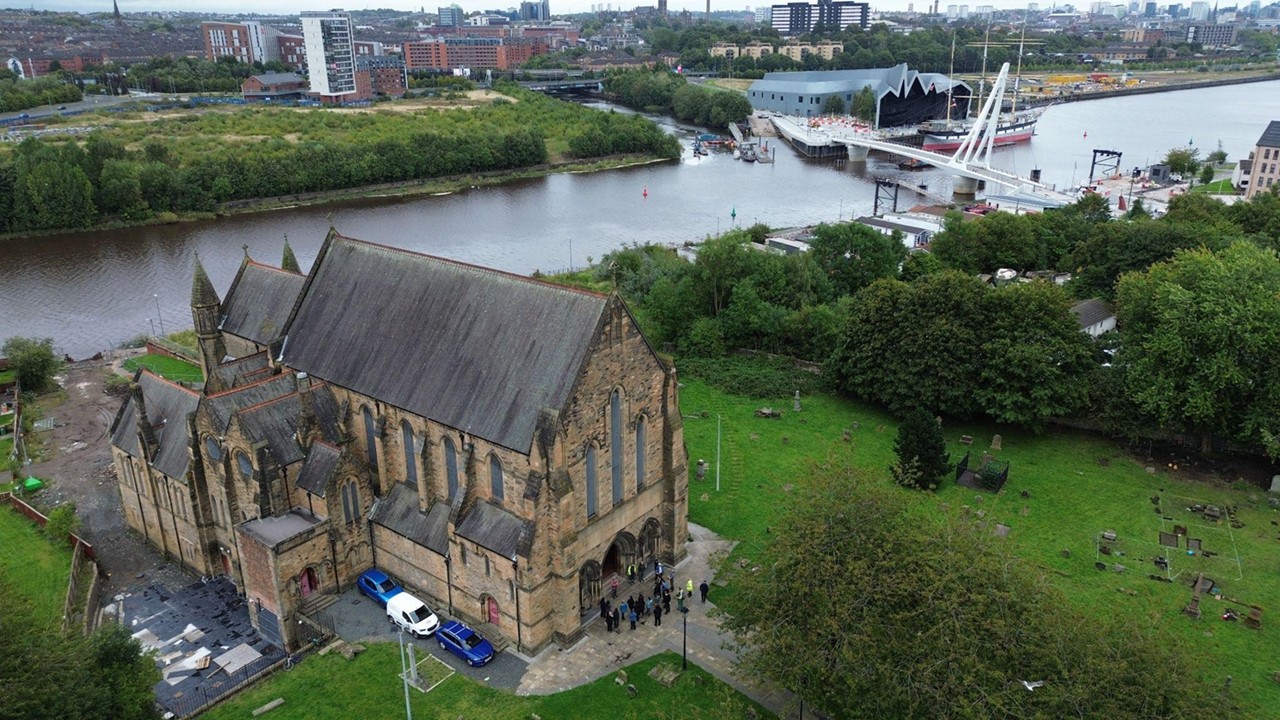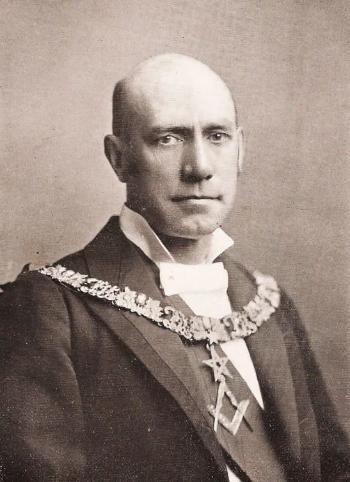2025-26 Lectures: 20 and 21 November 2025
This year’s Dalrymple lecture series will mark Glasgow 850 with a pair of lectures exploring the contribution of archaeology to telling the story of Glasgow’s first 850 years – and what came before Glasgow.
The lectures will be delivered by Stephen Driscoll, Professor of Historical Archaeology at the University of Glasgow.
The series will be entitled Stones, Saints, Ships and Slaves: an archaeology of Glasgow for 850
- Thursday 20 November 2025 Part 1: Medieval Conceptions (AD 500-1600)
- Friday 21 November 2025 Part 2: Modern Movements (AD 1600-present)
Both lectures will take place in the Sir Charles Wilson lecture theatre, from 630pm. Entry is free to all and there is no need to register or get a ticket in advance.
The Charles Wilson Building can be found on the corner of Gibson Street and Kelvin Way on the main campus of the University of Glasgow.
The address is: 3 Kelvin Way, Glasgow G12 8NN.
What three words: draw.among.trail
The lecture theatre is on the ground floor of this building and will be clearly signposted upon arrival.
The lectures will also be livestreamed and recorded. To watch the lectures live, please follow this link. The livestream will begin at 628pm on each evening.
About the lectures
These lectures offer a narrative of Glasgow driven by the archaeological evidence to explore the distinct phases of development from the formative origins in Govan, to the mature medieval burgh, and on to the expanding commercial and social of the modern era. The foundation of the burgh in AD 1175 provides the pivotal point for these two lectures which is appropriate because in so many ways urbanism is the defining trait of Glasgow. How can we track this when, as we know from our lived experience, the composition of urbanism is always changing? These lectures will examine the material record to chart the development of specific form of urbanism and can draw upon the substantial body of evidence for Glasgow’s medieval and modern pasts which has been recovered in the past several decades.
The first lecture ‘Medieval Conceptions AD 500 – 1600’ will draw upon the excavations in the heart of the burgh and in Govan to examine the organisational concepts through their material remains. This will move from the formative period of British kings and Vikings to the episcopal burgh dominating a princely diocese becoming ever more integrated into the European mainstream and ever more entangled with England.
The second lecture ‘Modern Movements AD 1600 – present’ begins by taking look close look at the changes made to Glasgow Cathedral at the Reformation and how its subsequent use a civic place memorialisation has preserved a detailed record of Imperial connections, throughout the Atlantic world and to Africa, India and China. But Empire cannot fully explain contemporary Glasgow, which only assumes its present form as an Industrial city, a city that manufactures class as much as engineering. A city that demands an activist archaeology.
About the Speaker
Professor Steve Driscoll is Professor of Historical Archaeology at the University of Glasgow.
His main research interest is the archaeology of the Insular Celtic peoples and exploring the early medieval social foundations of the British state, particularly in Scotland. A native of Washington DC he had the good fortune to come to Glasgow in 1982 and apart from a stint excavating in Edinburgh he has never left. Early in his career he set up the field unit GUARD and undertook a series of large infrastructure projects, before becoming a full-time academic. His principal publications include Power and Politics in Early Medieval Britain and Ireland (1988), Excavations within Edinburgh Castle (with Peter Yeoman 1997), Excavations at Glasgow Cathedral (2002), Historic Govan (with Chris Dalglish 2009), Pictish Progress (with Jane Geddes and Mark Hall 2011) and Royal Forteviot (with Ewan Campbell 2020), The Archaeology of Britain (with Vicki Cummings 2025).
A long-standing member of the
Glasgow Archaeological Society, he served as the first editor of the
Scottish Archaeological Journal. An equally long-stand fellow of the Society of Antiquaries of Scotland, he has served on their editorial board for many years. He has privilege of serving on the Historic Scotland Advisory Committee 2012-15) and chairing the committee that developed the Scottish Archaeology Strategy (2013-19). He had the honour of co-ordinating the team that delivered the largest archaeology conference in Scotland, the European Archaeology Association meeting in Glasgow (2015). His experience as a trustee of the York Archaeological Trust (2013-21), has guided his work with the Govan Heritage Trust and the Govan Workspace Ltd. In 2021 he was elected to the Royal Society of Edinburgh.







